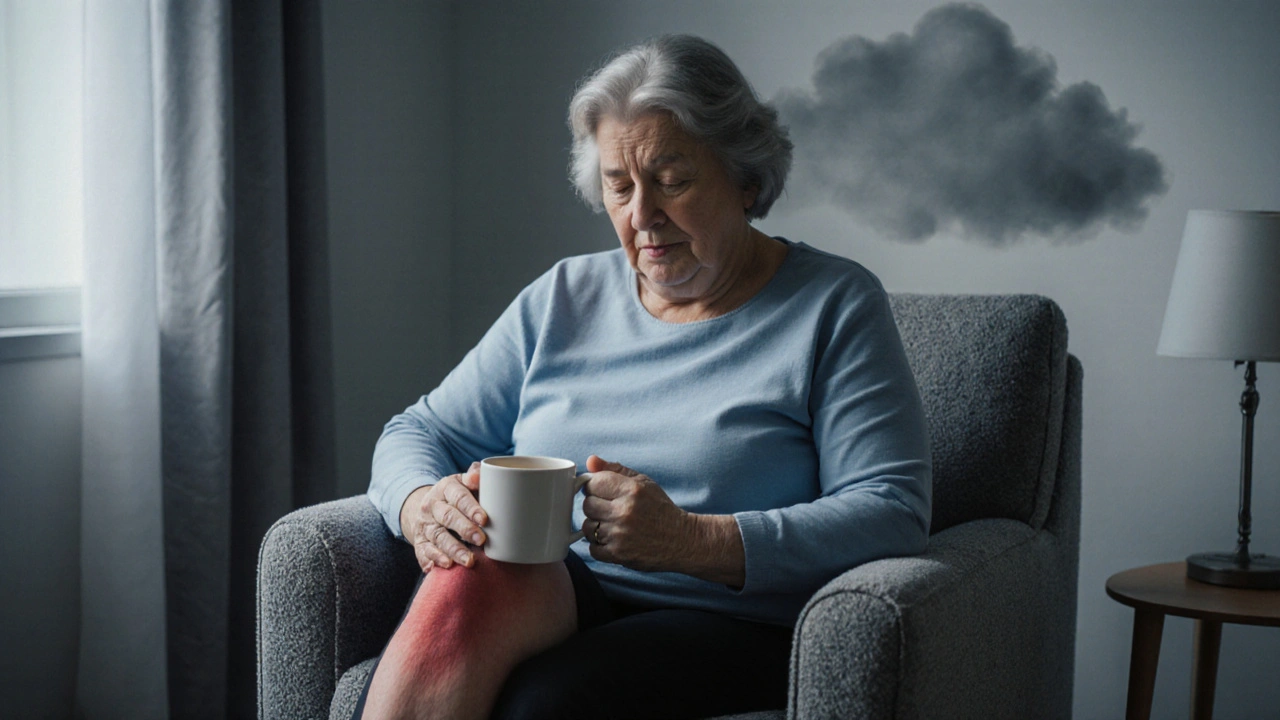Rheumatoid Arthritis and Depression: Understanding the Link
When dealing with rheumatoid arthritis depression, the co‑occurrence of joint disease and low mood that often worsens each other. Also known as RA‑related depression, it impacts daily function, treatment response, and overall quality of life.
Rheumatoid arthritis itself is a chronic autoimmune disorder that attacks joints and causes pain, swelling, and fatigue. It is marked up as rheumatoid arthritis, an inflammatory disease that can affect the whole body. Depression, on the other hand, is a mood disorder characterized by persistent sadness, loss of interest, and physical symptoms. It appears here as depression, a mental health condition that often co‑exists with chronic illnesses. The two conditions share a bidirectional relationship: the pain and disability of RA can trigger depressive symptoms, while depression can amplify perceived pain and reduce adherence to medication.
How Inflammation Connects Joint Damage and Mood
Inflammation is the biological bridge linking RA and depression. Elevated cytokines such as IL‑6 and TNF‑α not only drive joint erosion but also influence brain chemistry, leading to mood disturbances. This connection is captured by the entity inflammation, the body’s immune response that can affect both joints and the nervous system. Studies show that reducing systemic inflammation with disease‑modifying antirheumatic drugs (DMARDs) often improves depressive scores, proving that treating the physical disease can help the mental one.
Effective management therefore requires a combined approach. Screening for depression during rheumatology visits is essential; tools like PHQ‑9 give a quick snapshot of mood. When depression is identified, clinicians may add antidepressants, psychotherapy, or lifestyle changes such as regular exercise, which also benefits joint health. On the medication side, newer biologics that target specific inflammatory pathways can lower both joint pain and depressive symptoms, illustrating the triple link: disease activity, mood, and treatment response.
Patients also benefit from self‑care strategies. Mind‑body techniques—such as mindfulness meditation, yoga, or tai chi—reduce stress hormones and may dampen inflammatory signaling. Nutrition plays a role too; omega‑3 fatty acids, found in fish oil, have modest anti‑inflammatory effects and can support mood stability. Sleep hygiene is another cornerstone: poor sleep heightens pain perception and worsens depression, creating a vicious cycle.
Support networks matter. Joining RA support groups provides emotional validation and practical tips for coping with daily challenges. Family education about the mental health aspect helps reduce stigma and encourages adherence to both rheumatology and psychiatric treatment plans. When patients feel heard and understood, they are more likely to stay engaged with therapy.
Below you’ll find a curated collection of articles that dive deeper into each of these topics—from how specific drugs compare in managing both joint inflammation and depressive symptoms, to practical guides on lifestyle changes that can lift mood while protecting joints. Use these resources to build a personalized plan that addresses both sides of the coin.

How Arthritis Triggers Depression - What You Need to Know
Explore how arthritis and depression intertwine, the biological and lifestyle reasons behind the link, and practical steps for managing both conditions effectively.
Read More




